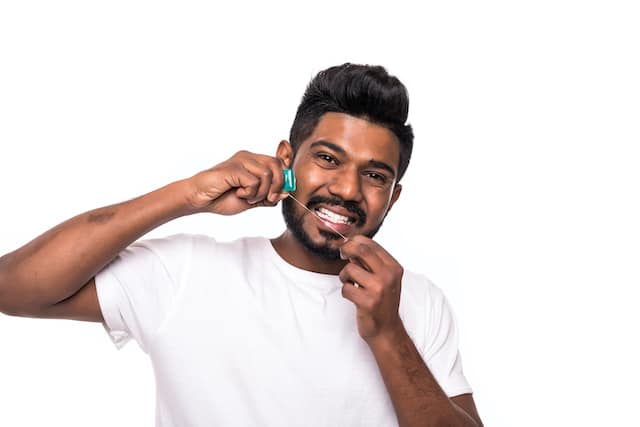What's The Most Common Cause For Bleeding Gums When Flossing?
The most likely cause for your bleeding gums is that bacteria has built up around your gumline and turned into plaque (a soft, sticky, colourless film), resulting in gingivitis.
Gingivitis is an early stage of gum disease. The word "disease" sounds scary, but according to the National Oral Health Survey of India, 41.2 percent people in 35-44 years age group are affected from gum disease. That doesn't mean you shouldn't take gingivitis seriously, though. Left untreated, it can develop into periodontitis. This more severe form of gum disease can cause your teeth to loosen or even fall out.
But don't worry, gum disease can be reversed, and we'll tell you how.
Learn more about gingivitis.
What Are Other Reasons Gums Bleed When Flossing?
Gingivitis may be the most common cause of bleeding gums, but it's not the only cause. Some other reasons to consider include:
- If you just started flossing
This should clear up in about a week, and if it persists, you may have gingivitis. - The use of blood-thinning medications
If you're taking blood-thinning medications, this could also cause bleeding in your gums. Speak with your medical professional to determine if this is the case and see if any changes are recommended. - Taking new medications
If your bleeding gums start around the same time you begin taking a new medication, then you may want to talk to your physician to determine if the medication may be the cause. - Pregnancy
If you're pregnant, hormonal changes may be increasing your sensitivity to plaque, and you may have pregnancy gingivitis. Practicing good oral hygiene and seeing your dental professional regularly while pregnant can help prevent pregnancy gingivitis.
What Should You Do When Your Gums Bleed?
The National Health Portal of India point out that healthy gums do not bleed. Therefore, in case your gums bleed, it means that your gums are inflamed. It might be due to gingivitis or periodontitis or some serious medical condition. Visit your dentist to get appropriate treatment. If your dental professional diagnoses you with gum disease early, a professional cleaning and proper oral hygiene can reverse its effects. If you have gum disease that advances to a more severe state, your dental professional may recommend scaling and root planing.
Learn more about scaling and root planing.
In most cases, the best way to prevent bleeding gums is to practice good oral hygiene. Be sure to brush at least twice a day, don't forget to brush your tongue, and keep flossing or using an interdental brush or oral irrigator to clean between your teeth. Consider using other helpful products like an antimicrobial mouthrinse and tongue scrapers. And be sure to see your dental professional for regular appointments whether your gums are bleeding or not.
Together, you and your dental professional will be able to discuss the best options for your individual needs, and you'll be able to feel great about a future of oral health that makes you smile.
This article is intended to promote understanding of and knowledge about general oral health topics. It is not intended to be a substitute for professional advice, diagnosis or treatment. Always seek the advice of your dentist or other qualified healthcare provider with any questions you may have regarding a medical condition or treatment.
ORAL HEALTH QUIZ
What's behind your smile?
Take our Oral Health assessment to get the most from your oral care routine
ORAL HEALTH QUIZ
What's behind your smile?
Take our Oral Health assessment to get the most from your oral care routine













